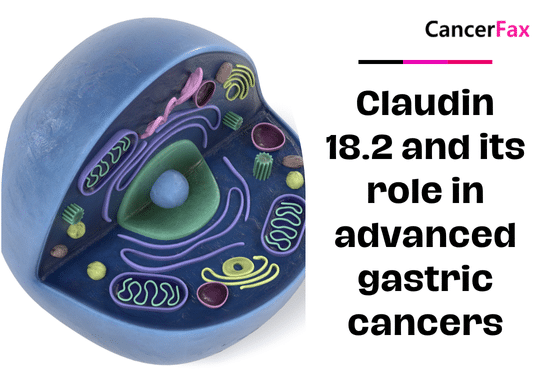Claudin 18.2 and its role in advanced gastric cancers
August 2022: The most apical portion of polarized epithelial and endothelial cells contains tight junctions, which are specialized membrane domains. The claudins, which are important proteins in tight junctions and have loops outside the cell, could be useful targets for diagnosis and treatment. They might be crucial in the development of tumors and inflammation.
In many types of epithelial cancers, changes in claudin levels have been shown to help tumors grow, influence cell signaling, and disrupt tight junctions. Malignancies damage tight junctions, leading to the loss of claudin proteins’ primary function. Many malignancies, such as gastric cancer (GC), hepatocellular carcinoma (HCC), biliary tract cancer (BTC), breast cancer, renal cell carcinoma, pancreatic cancer (PC), non-small cell lung cancer (NSCLC), and mesothelioma, have improperly regulated claudins.

GC and PC are two malignancies that frequently express claudin 18.2, a member of the claudin family. Except for the gastric mucosa, healthy tissues do not express claudin 18.2. A new and powerful chimeric IgG1 monoclonal antibody called zolbetuximab, which attaches to claudin 18.2 on tumor cells, has recently been developed and is currently being tested in clinical trials. In a phase II trial (NCT01630083), patients with gastric cancer that have claudin 18.2 who received zolbetuximab along with standard chemotherapy lived longer on average than those who only received chemotherapy.
This encouraging finding shows that in order to expand the clinical applicability of this innovative drug to treat various cancer types, clinical trials utilizing it are required. The widespread expression of claudin 18.2 is a significant and remarkable finding for the treatment of cancer, given that patients who are positive for human epidermal growth factor receptor 2 (HER2) and who are currently being treated with the novel agent trastuzumab make up only 10–15% of all cases of GC (21).
The status of claudin 18.2 in various tumor types has not been thoroughly investigated using immunohistochemistry, which is significant (IHC). We conducted a study using claudin 18.2 IHC in a group of patients with various solid tumors to explore how claudin 18.2 can be used as a biomarker.
Susan Hau is a distinguished researcher in the field of cancer cell therapy, with a particular focus on T cell-based approaches and cancer vaccines. Her work spans several innovative treatment modalities, including CAR T-cell therapy, TIL (Tumor-Infiltrating Lymphocyte) therapy, and NK (Natural Killer) cell therapy.
Hau's expertise lies in cancer cell biology, where she has made significant contributions to understanding the complex interactions between immune cells and tumors.
Her research aims to enhance the efficacy of immunotherapies by manipulating the tumor microenvironment and exploring novel ways to activate and direct immune responses against cancer cells.
Throughout her career, Hau has collaborated with leading professors and researchers in the field of cancer treatment, both in the United States and China.
These international experiences have broadened her perspective and contributed to her innovative approach to cancer therapy development.
Hau's work is particularly focused on addressing the challenges of treating advanced and metastatic cancers. She has been involved in clinical trials evaluating the safety and efficacy of various immunotherapy approaches, including the promising Gamma Delta T cell therapy.
- Comments Closed
- August 29th, 2022



advanced gastric cancer, Claudin 18.2, CLDN18.2, CLDN18.2 expression, CLDN18.2 testing, gastric cancer biomarker, gastric cancer treatment, gastroesophageal junction cancer, targeted therapy, zolbetuximab
CancerFax is the most trusted online platform dedicated to connecting individuals facing advanced-stage cancer with groundbreaking cell therapies.
Send your medical reports and get a free analysis.
🌟 Join us in the fight against cancer! 🌟
Привет,
CancerFax — это самая надежная онлайн-платформа, призванная предоставить людям, столкнувшимся с раком на поздних стадиях, доступ к революционным клеточным методам лечения.
Отправьте свои медицинские заключения и получите бесплатный анализ.
🌟 Присоединяйтесь к нам в борьбе с раком! 🌟